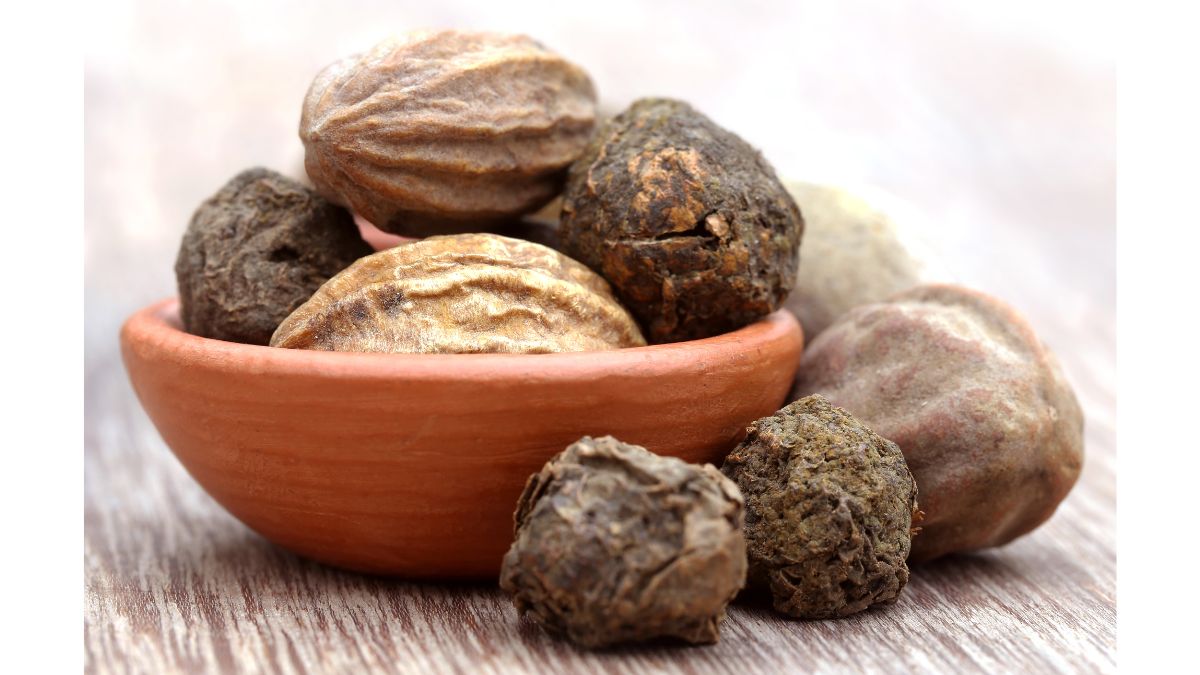- By Prerna Targhotra
- Tue, 27 Feb 2024 11:06 AM (IST)
- Source:JND
Benefits Of Triphala Water: Triphala is an ancient remedy used for treating numerous ailments. It is believed to promote longevity and the overall health and well-being of an individual. Triphala is considered a polyherbal medicine, meaning it consists of several different medicinal herbs. It has innumerable health benefits including better digestion, oral health, and skin healing among others. Drinking triphala water is a great home remedy to get rid of illnesses and promote digestion. Here are some amazing benefits of drinking triphala water on an empty stomach in the morning.
Watch the video below about tips to digest food fast:
Benefits Of Triphala Water
Oral Health
A study found that Triphala mouthwash was effective as a chlorhexidine mouthwash to prevent plaque and other oral health problems. It may also help in reducing fungal growth in the mouth.
ALSO READ: 6 Drinks To Consume Post-Meals For Better Digestion
Diabetes Management
Drinking triphala water can also help you manage type 2 diabetes. According to WebMD, amala, one of the three fruits in Triphala, has antioxidants that may provide antidiabetic effects. These include lowering blood sugar levels and treating nerve damage in people with type 2 diabetes.
Reduces Inflammation

Benefits Of Triphala Water (Image Credits: Canva)
The three fruits in Triphala contain numerous antioxidants including flavonoids, polyphenols, saponins, and vitamin C which help fight free radicals in the body and reduce inflammation. They may also reduce the risk of heart disease, diabetes and other chronic conditions.
Better Digestion
Triphala is the oldest remedy to treat constipation and other digestive issues. It is known to be an effective natural alternative to over-the-counter laxatives. It may also help in regulating bowel movements.
ALSO READ: 5 Collagen-Rich Foods For Healthy And Youthful Skin
Anti-Cancer Properties
WebMD states that there is minimal research on Triphala’s anti-cancer properties. Some test-tube studies show that it may help to kill colon cancer cells as well as prostate cancer cells. While the studies are promising, determining the effectiveness and safety of the treatment requires more research.
(Disclaimer: This article is for informational purposes only. It is not a substitute for professional advice, diagnosis or treatment.)

